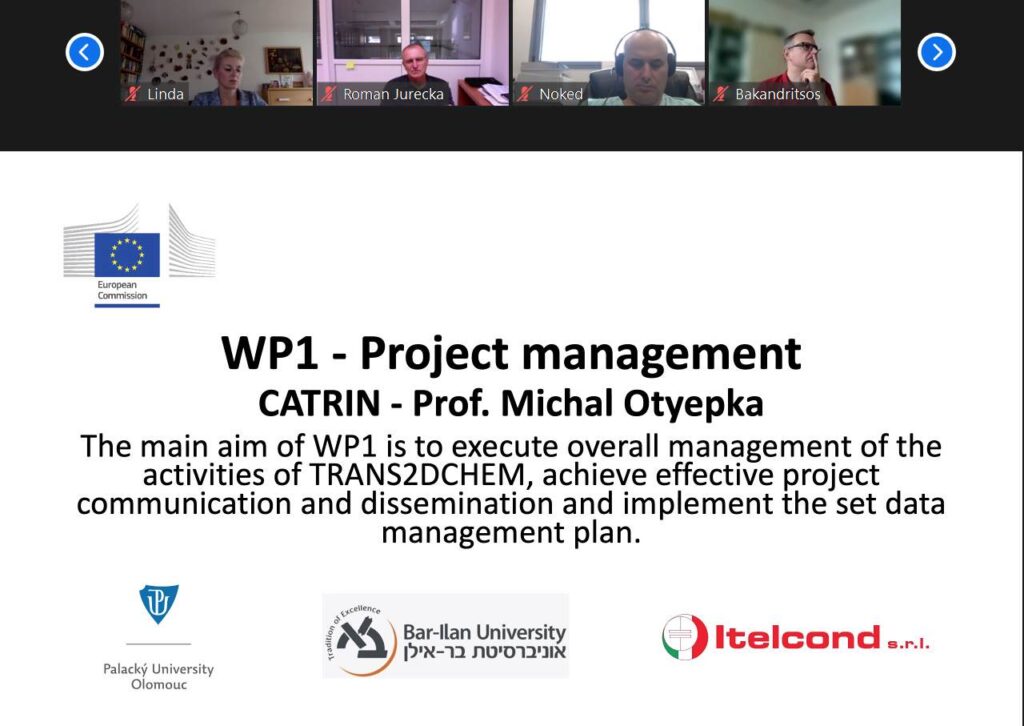The prestigious EIC project grant has just started
Wednesday’s kick-off meeting of all partners launched the European Innovation Council project EIC Transition Challenges. This completely unique grant in the Czech Republic with the total fund of nearly 62.5 million Czech koruna will focus on a prototype of a supercapacitor for storing electrical energy with a nanomaterial developed by scientists from CATRIN. The project, which aims to bring the technology closer to practice, will link scientists from the UP research institute with colleagues from Bar-Ilan University in Israel and the Italian company ITELCOND.
“The aim of the first meeting was to confirm the main project milestones, tasks for each partner institution, and to agree on the form of mutual cooperation and communication,” said the principal investigator Michal Otyepka, a three-time winner of ERC grants, among others. His ERC Proof of Concept project, which was the first in the Czech Republic, was one of the essential prerequisites for success in the EIC call. CATRIN will coordinate this kind of project not only as the sole institution in the Czech Republic, but also in the so-called Widening countries, which mainly include the new EU member states acceding after 2004.
For the prototype of a high-capacity, safe and environmentally friendly supercapacitor, scientists will use a graphene derivative developed in Olomouc laboratories, which is already protected by a European patent. It is nitrogen-enriched graphene, which is proving very promising for use in supercapacitors and, thanks to its properties, can bring a breakthrough improvement in the performance of supercapacitors.

The next step will be to design prototypes of supercapacitors in collaboration with foreign partners. “We will focus on optimizing the properties of our material and move to pilot production of new types of supercapacitors. The aim is to increase the energy density of supercapacitors above 50 Wh/L, which will be about twice as much as the best components on the current market. This will allow their wide use in electric vehicles as well as supporting batteries in devices that need to be supplied with large amounts of energy in a very short time,” concluded Otyepka.
The implementation of the project entitled ‘Transition of 2D-chemistry based Supercapacitor Electrode Material from Proof of Concept to Applications’ will continue until September 2025. The project is fully funded by the European Union research initiative Horizon Europe.


